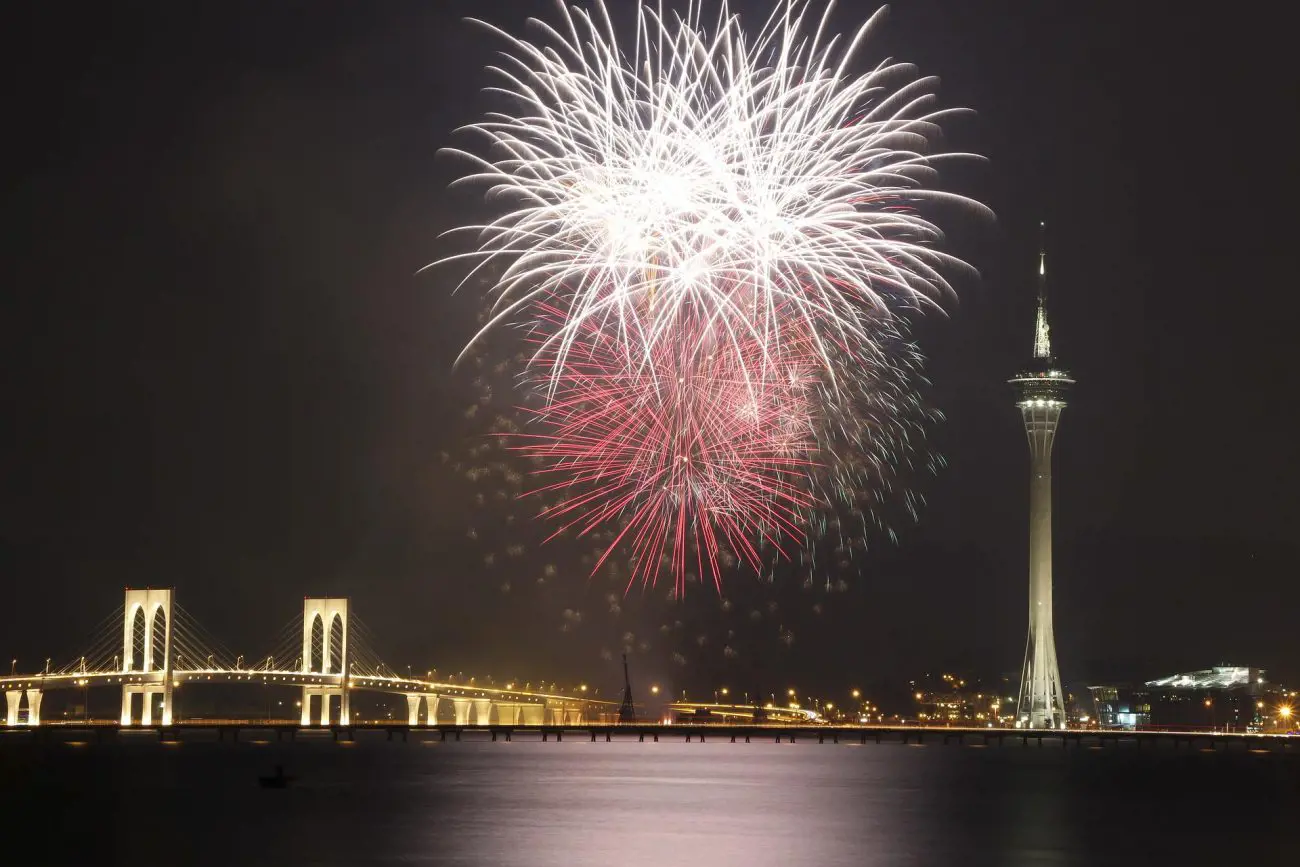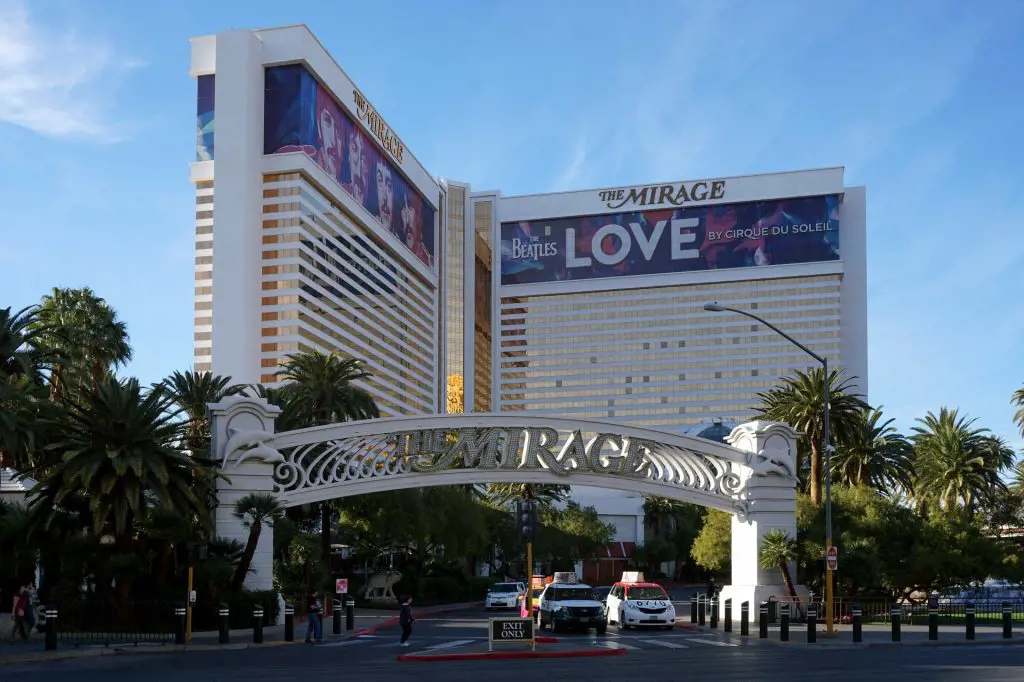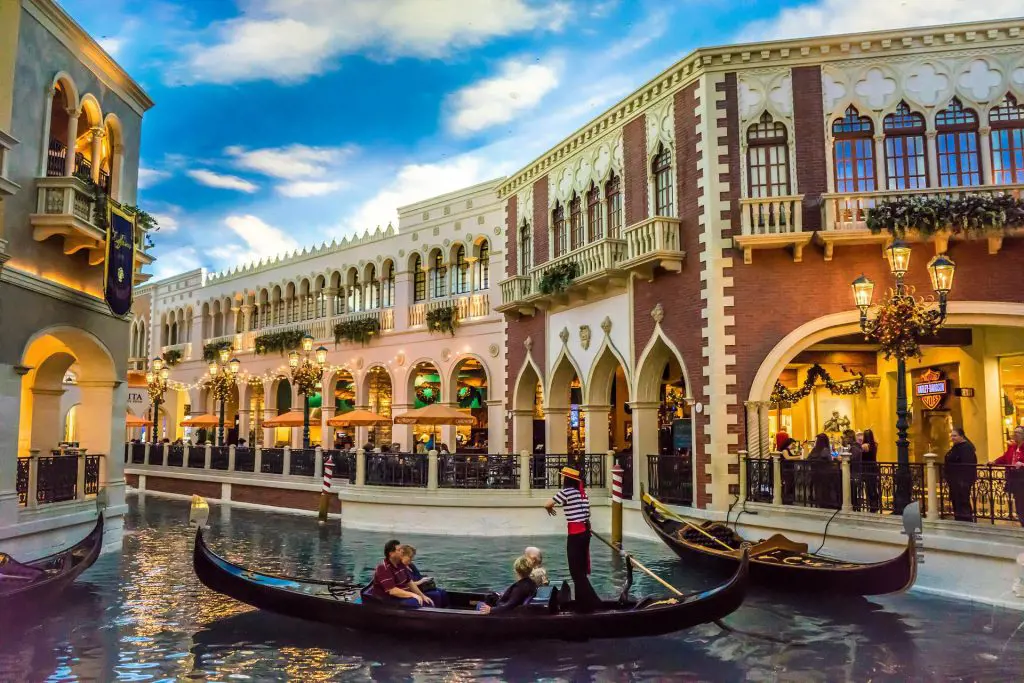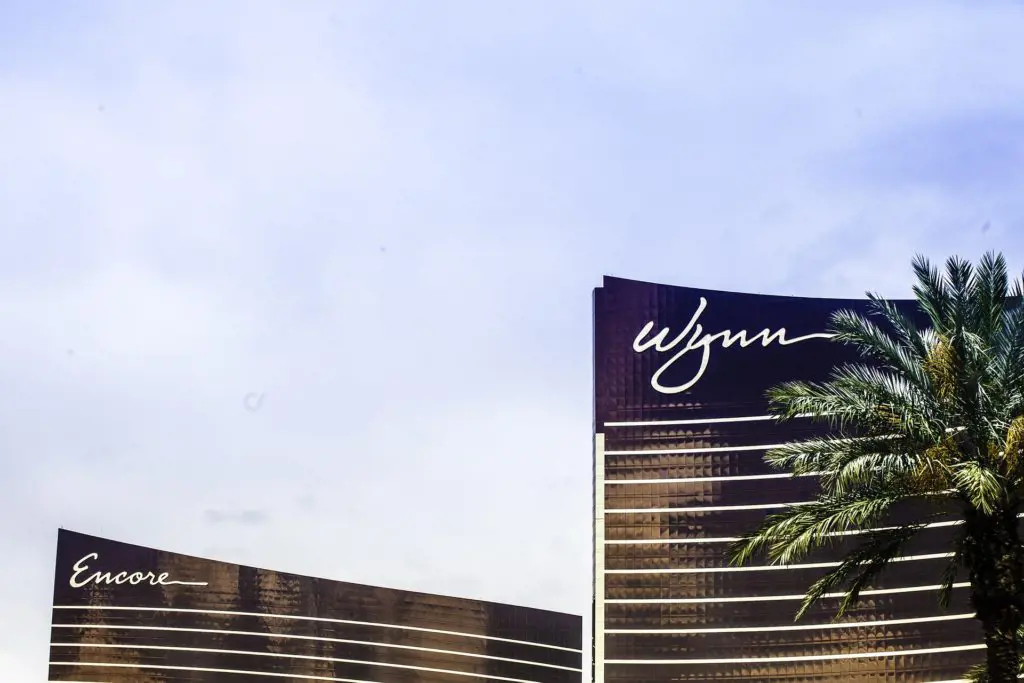Adelson, Wynn flourished in Macau, but their rivalry foundered
New gaming law, mainland China’s anti-gaming policies revive debate over which mogul got Macau right, Muhammad Cohen reports

Amid the challenges of Covid and Macau’s new gaming law alongside Beijing’s efforts to curb gambling, this year’s twentieth anniversary of the city’s casino liberalisation has gone not just uncelebrated but virtually unnoticed.
So much that’s happened over these two decades in the world’s pre-Covid casino hub has been unexpected. Back in 2002, Atlantic City and the Las Vegas Strip dueled for global casino revenue supremacy, while Cotai was swampland flanking a lightly traveled causeway.
One widely anticipated phenomenon failed to materialize. When Wynn Resorts and Las Vegas Sands were announced among Macau’s casino concession winners in early 2002, it seemed inevitable that the rivalry between Steve Wynn and Sheldon Adelson that began in Las Vegas would reach new heights in Asia. Their profits surely did, thanks to Macau (and in Adelson’s case, Singapore, too), but their competition fizzled for a variety of reasons.
“Was the rivalry real? You bet it was!” tourism and integrated resort development adviser Dr Andy Nazarechuk says.
Wynn’s city
Adelson bought the fabled Sands hotel in 1988 just as Wynn refocused on Las Vegas after selling Golden Nugget in Atlantic City – where he feuded with a casino owner named Donald Trump – and began construction of Mirage, a resort that revolutionized the Strip.

“Las Vegas was Steve Wynn’s city and any new competitor was perceived as a threat to his status,” Nazarechuk, a casino executive and academic in Las Vegas for a quarter century, recalls. “Steve Wynn was a charismatic leader who was always front and center in the media. Sheldon Adelson let his projects speak for him and didn’t allow any dissenting opinions to slow him down.
“Las Vegas was a relatively small town back in those days. There was no way to avoid confrontation between these two powerful leaders who both had big egos and iconic goals.”
Indeed, when Adelson opened the Venetian across the Strip from Mirage, he complained about Wynn’s noisy volcano erupting outside.
Dean Macomber, a longtime gaming executive and consultant, questions the depth of the rivalry. “Oh sure, they paid attention to each other. Smart guys watch what other smart guys do: any smart guy, not just an erstwhile rival. But, did Wynn make a decision without considering Adelson, or Adelson without considering Wynn? I don’t think so,” Macomber, whose resume includes a senior vice president stint at Venetian Macao, says.
“Messrs Adelson and Wynn had enough vision, chutzpah, horsepower, traction, and vim and vigour to make their contribution without working formally or informally, consciously or subconsciously, in rivalry.”
Big enough for both of them

The Innovation Group senior vice president of international operations Michael Zhu notes sparring between Wynn and Adelson over Macau surfaced occasionally.
During one set of quarterly earnings calls during Macau’s early days, he remembers, “Mr. A claimed, ‘bigger is better,’ whereas Mr. W responded a few days after with ‘better is better.’”
Moments like that were rare, though. “The primary reason is that the cake was big enough for everyone to have a decent slice,” Zhu says.
Moreover, Wynn and Adelson were eating from different sides of the Macau platter.
“The two companies have implemented different approaches to Macau and have focused on distinct segments, but both have succeeded and accomplished their goals to a large extent, at least prior to the Covid era,” Zhu says.
“In Macau, Adelson and Wynn already knew that the integrated resorts they built didn’t compete but complemented each other,” Nazarechuk says.
Starting with the venerable Golden Nugget gaming hall downtown, Wynn added Vegas to the luxury travel map. Much is made of Wynn’s design and image making skills – “Wynn did magic and created dreams,” Macomber says – and not enough of the business genius behind it, intended or not.
Overthrowing the model of cheap rooms and eats to feed the casino transformed every part of the property into a potential profit center. Rather that subsidizing each visitor and hoping they’d spend on the casino floor, Wynn invited everyone to spend in a place that made customers feel rich.
“The Wynn experience had cachet,” Macomber says after years of competing against it. “It was perceptible, and people would pay extra for it to be able to talk about it to others.”
Perhaps most important, offering a luxury product encouraged rich people to visit. Rich people, by definition, can spend more than other people, whether it’s at a restaurant, a store, a spa or a baccarat table.
Serial entrepreneur Adelson came to gaming via the travel business and then conventions. He built his own hotel because he felt Las Vegas incumbents treated him and his convention clients shabbily. Adelson’s MICE-based integrated resort model evolved from the Wynn template, with businesses paying for rooms and meals, freeing guests to spend on gaming and shopping.

Macau wanted each of them to bring their models there.
“Wynn’s properties were viewed, rightfully, as the best in the world,” Nazarechuk says. “Who wouldn’t want a Wynn property in a new and growing market? Wynn’s past experience with the Chinese market in Las Vegas, and his ability to attract the largest industry whales, ensured his own success in Macau.”
Sands won its place in Macau on the strength of its convention focus, but Adelson and his team on the ground – during the 2001-02 concession bidding and evaluation, Adelson was largely sidelined with the onset of neuropathy, a nerve ailment that persisted until his death last year at age 87 – saw the larger compelling opportunity.
Adelson was able to “do the math and make an early, critical conclusion that Macau was family to the PRC and casino gaming not available to the 1.3 billion or so Chinese citizens at the time,” Macomber says. “He wanted to pick up the Las Vegas Strip and drop it down in Cotai,” the then-unfinished landfill linking Macau’s outer islands of Coloane and Taipa. Adelson’s key Macau strategies were,“capacity, capacity, capacity,” Macomber says, and creating it fast.
Adelson opened Sands Macao in May 2004, Venetian Macao in August 2007, the adjacent Four Seasons Plaza complex a year later and was building what became Sands Cotai Central, now morphed into Londoner, when the global financial crisis of 2008-09 halted progress temporarily. Today, Sands still has as many guest rooms in Macau as its casino rivals combined.
Wynn, on the other hand, delayed beginning construction as he pressed the Macau government to allow gambling debt collection through courts, which it eventually did (though gambling debts remained unenforceable legally in mainland China), and tax deductions for unpaid debts, which it did not. Wynn Macau didn’t open until September 2006, more than four and half years after the concession grant and more than two years after Sands Macao.
University of Macau business economics professor Ricardo Siu says “clear differences in market positioning” were on display in local TV coverage of the openings of Sands Macao and Wynn Macau. At Sands’ mid-afternoon opening, a mob pushing against the locked doors led security officers to tear them down. Within minutes, the escalator up to the gaming floor broke, overloaded with people riding three and four to a step. The late night opening of Wynn Macau was far less crowded by design, enabling Steve Wynn to “present a luxurious view of his property to the public with nice music and fireworks.”
Different personalities
Siu believes differences in strategy arose in part from Wynn and Adelson’s personalities. They arrived in Macau situated differently in the gaming pecking order and in their careers. Wynn brought a visionary reputation, his ouster from Mirage Resorts more of a footnote than a blemish to be largely erased by his Wynn Resorts complex then under development on the Strip. Relatively new to gaming, Adelson had more to prove and, ailing and over 70 when Sands Macao opened, was likely in a rush to do it.
Entertainment formed a large part of Wynn’s reputation, from Frank Sinatra at his Golden Nuggets in Vegas and Atlantic City (and in cheeky TV ads with Wynn) to Siegfried and Roy and Cirque du Soleil on the Strip. But Wynn didn’t bring that part of his portfolio to Macau, and didn’t even open a theater there.
“Vegas was built on entertainment,” Nazarechuk says. “Macau is a different market and Steve Wynn knew this well. The only thing that the Chinese want to do is gamble. Wynn understood this and didn't waste time, effort, or money trying to build a showroom that he knew wouldn’t work.”
Adelson, on the other hand, brought Macau a new Cirque du Soleil show, built a 15,000 seat arena plus more than 1 million square feet of MICE space and a shopping mall with another 1 million square feet, more than Macau’s existing retail space inventory at the time. He wasn’t just tracing his Vegas blueprint but following Macau’s policy goal of creating a destination that offered more than gambling.
“Adelson’s MICE space at Venetian Cotai sat basically unused for years, lounges and showrooms were well underutilized, and activities for families were simply not needed,” Macomber says. “Adelson was smart to build unused MICE space and an unused huge lake in front of Venetian Cotai if it earned him the right to build [the rest of the resort].” Wynn’s reputation alone had earned him that right.
In the current pre-dawn of Macau’s new era under the revised gaming law and Beijing’s reduced tolerance for gambling, there’s more room to debate whether Adelson or Wynn’s approach was best.
“It was clear that the casino owner/operator who opened with the most capacity in the shortest amount of time would reap the greatest rewards in the first ten years after opening, maybe more,” Macomber says. “It is not as clear whether doing so after those halcyon years was the best strategy or not, for Macau or the casino owner and shareholders – Covid and geopolitics make doing so more risky.”
“Within the context of the new gaming law in Macau, while Wynn Macau may not be able to cover a wide scope of mass tourism, the focus on ‘attracting new foreign visitation’ [for potential tax reductions] may become something they are good at,” Zhu says. “They have, arguably, the best resort products in the Macau market.”
“If Wynn does not adjust its business strategy to follow Macau’s overall trend of mass market development, it is quite likely that its market share may fall,” Siu says. “However, on top of maintaining its high-end brand, Wynn has also been cultivating the mass segment in one way or another over the last decade, although it may not be interested in low-end mass.”
The Macau native adds that Adelson and Wynn’s “different approaches could be beneficial to Macau’s development plan” giving visitors options created by two of gaming’s leading modern visionaries.
“No one knows what will happen in Macau in the long run, but a Wynn property will always be desired to maintain a quality image,” Nazarechuk says. “The LVS properties are the heart and soul of Macau. Both concepts will succeed in the long run, but it is a painful time right now for all concerned.”
Well before Covid, the rivalry between Adelson and Wynn expired in Macau from natural causes. While rivalries arise for a variety of reasons, competitiveness sustains them. Once the global financial crisis passed and Cotai became Macau’s center of gaming gravity, Sands far outpaced Wynn in gaming revenue, vying with SJM and then Galaxy for the top spot while Wynn fought Lawrence Ho’s Melco for third place.
Between Sheldon Adelson and Steve Wynn personally, the gap was even greater. Wynn’s wealth peaked in 2014 at US$3.8 billion, according to Forbes. Adelson’s estimated wealth that year was US$38 billion.
Rivals? They weren’t even in the same league.
Former US diplomat Muhammad Cohen has covered the casino business in Asia since 2006, most recently for Forbes and Inside Asian Gaming, and wrote Hong Kong On Air, a novel set during the 1997 handover about TV news, love, betrayal, high finance and cheap lingerie.